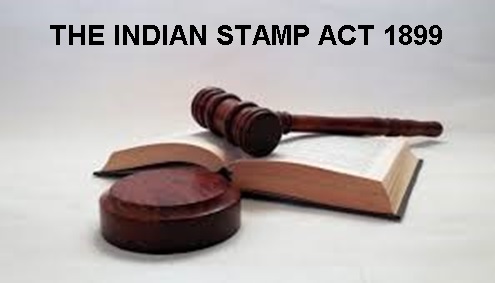Takeover Code, known as the SEBI (Substantial Acquisition of Shares and Takeover) Regulation, 2011, acts not only as a Code to regulate acquisition of shares or voting rights of listed entities, but also protects interests of investors by preventing any acquisitions happening without information in the public domain. The disclosure requirements of this code are aimed to cautioning the unwary public shareholders as well as the current controlling shareholders to understand there is likely to be an acquisition.
The listed company or entity whose shares are being acquired is known as the “Target Company.” The word “acquirer” as used in this Takeover Code not only refers to the acquirer but also to all other persons who are acting in concert with him.
In this piece, we are giving you a picture of what Regulation 29 of the Takeover Code prescribes.
29(1): Acquirers acquiring shares or voting rights of a Target Company must disclose to the company their aggregate shareholding and voting rights, if their shareholding in the Target Company becomes 5% or more.
29(2): Acquirers holding already 5% or more of shares or voting rights of a Target Company must disclose any change in their stake, whether increase or reduction, if the change exceeds 2% of total shareholding or voting rights of the Target Company. In other words, change in their stake could be either due to further acquisition or due to disposal of their existing holding.
29(3): The above disclosures must be made by the acquirer to the stock exchanges where the acquired shares are listed and also to the Target Company itself within working 2 days of such acquisition.
Prior to amendment of Regulation 29(3), by the SEBI (Substantial Acquisitions of Shares and Takeovers) (Third Amendment) Regulations, 2018, it did not specifically use the words “or the disposal”. As such, it was possible to contend that the disclosure obligation stipulated under the Regulation 29(2) read with 29(3) would not apply to any change arising from disposal of shares exceeding 2% of the total shareholding.
Any non-disclosure or delay in disclosures amounts to a contravention of the Regulations and such contraventions are punishable by a monetary penalty as prescribed under Section 15A of the Securities and Exchange Board of India Act, 1992. Inter alia, Section 15A(b) of the said Act states that if any person, who is required under this Act or any rules or regulations made thereunder to furnish any information, within the time specified therefor in the regulations, fails to file return or furnish the same within the time specified therefor in the regulations shall be liable to penalty which shall not be less than Rs.1 Lakh but which may extend to Rs.1 Lakh for each day during which such failure continues subject to a maximum of Rs.1 Crore. Thus, any failure or delay can result in the acquirer suffering a monetary penalty.
In a recent case, arising on account of failure by an acquirer to make disclosures under Regulation 29(2) within the time specified under Regulation 29(3) of disposal of shares of Roxy Exports Limited (REL), an order came to be passed by the Adjudicating Officer (AO) on the 04th November 2022.
In this case, the erstwhile promoters of REL had disposed their shares in REL to one Mr.Siddharth Chimanlal Shah because they felt that it is difficult to run the listed company because of lots of compliances and annual fees of authorities.
This failure was noticed by SEBI and it issued a Show Cause Notice to the erstwhile promoters of REL (the Noticees to the Show Cause Notice) and SEBI had appointed the AO to adjudge the contravention and determine the quantum of penalty.
The Noticees pleaded that they are common persons and they do not have enough knowledge about compliances, and they had complied with requirement of Regulation 29(2) by sending hard copies of disclosure required to be sent to stock exchange. They stated that they made disclosures under regulation 7(2)(a) read with regulation 6(2) of SEBI (Prohibition of Insider Trading) Regulations, 2015. They contended that such disclosures indicate that they did not have any fraudulent intention.
When SEBI asked them to show proof of acknowledgement from stock exchange for the disclosures made, they provided acknowledgment copy from the courier company. Stock exchange too confirmed that the disclosures were received on 16th August 2018 and disseminated on the website of the stock exchange on 17th August 2018.
The AO found that the following issues arise for consideration:
- Whether the Noticees have violated regulation 29(2) read with 29(3) of Takeover Regulations?
- Whether the violation, if any, attract monetary penalty under section 15A(b) of the SEBI Act?
- If yes, what should be the quantum of monetary penalty?
AO noted that the requirement to disclose even disposal of shares came into the Regulations only in 2018. In the instant case, the disposal of the shares by the erstwhile promoters had taken place prior to the said amendment. Therefore, the AO held that violation of regulation 29(2) read with 29(3) of Takeover Regulations with respect to the Noticees does not stand established and therefore AO did not think it fit that this case warrants imposition of any monetary penalty upon the Noticees.
AO had taken note of an earlier decision of the Securities Appellate Tribunal (SAT) in Ravi Mohan and Ors. vs. SEBI, (Appeal No. 97 of 2014), decision dated December 16, 2015 wherein it was held that “regulation 7(2) does not provide for disclosure obligation arising from sale of shares or voting rights specified under regulation 7(1A). In such a case, there being no obligation under regulation 7(2) to make disclosure of sale of shares specified under regulation 7(1A), appellants cannot be held guilty of failing to make disclosure under regulation 7(1A) read with regulation 7(2) of the Takeover Regulations, 1997.”
It is worth noting that Regulation 7 of erstwhile Takeover Regulations, 1997 is analogous to Regulation 29 of the Takeover Code. It would be worth noting that in Rakesh Kathotia vs. SEBI (Appeal No.7 of 2016), in the decision dated May 27, 2019 of SAT, it was observed that the words “or the disposal” were added in Regulation 29(3) by an amendment w.e.f. September 11, 2018 after the decision of this Tribunal in Ravi Mohan’s case (supra) decided in the year 2015.
Thus, disclosure and other compliance obligations are supposed to be strictly construed and adhered to within the time if any specified under the relevant Regulations failing which the market regulator is entitled to enquire into and impose monetary penalties.
Now transactions in securities are tracked through System Driven Disclosures [SDD] introduced by SEBI with effect from July 01, 2022. However, disclosure obligations stipulated under Regulations 29 and 31 of the Takeover Code would continue to apply –
(a) for any acquisition or disposal of shares by the acquirer together with Persons Acting in Concert (PAC);
(b) where the shares are held in physical form by the acquirer and / or PAC; and
(c) to listed entities that have not provided PAN of promoter(s) including member(s) of the promoter group to the designated depository or companies that have not appointed a depository as their designated depository.
**********






